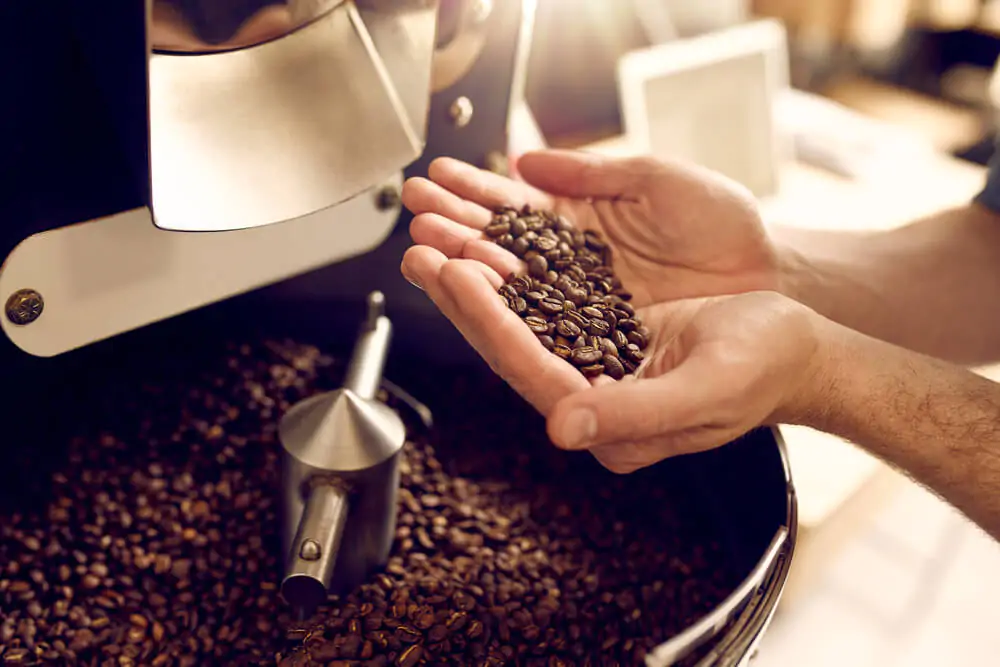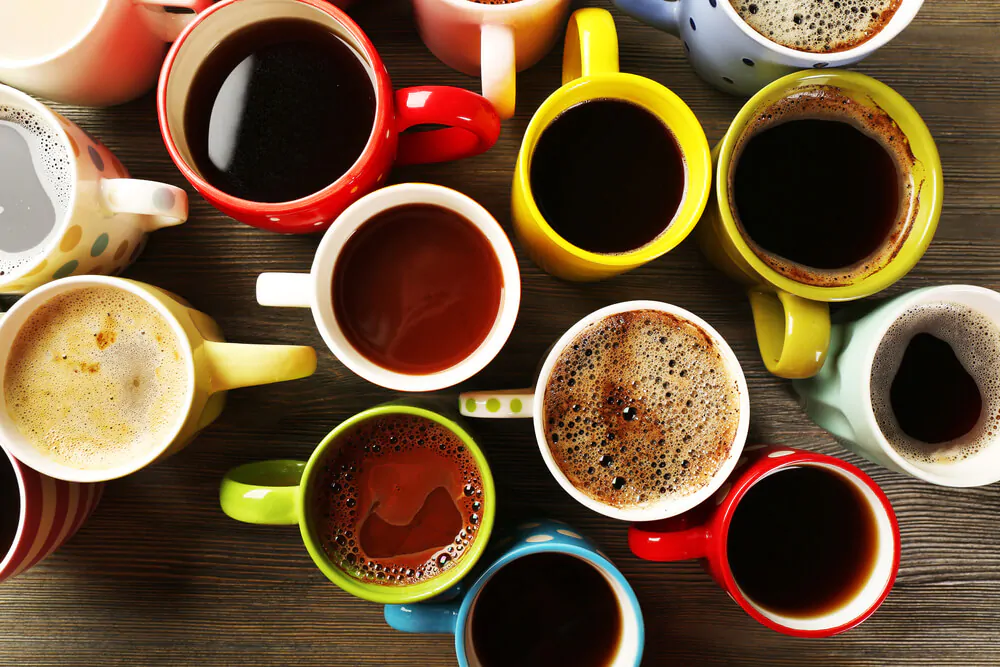How much caffeine does decaf coffee have? Is decaf coffee really decaffeinated? Learn more about decaffeinated coffee with our helpful article!

There is nothing quite like the smell of coffee beans in the morning. I am someone who has fallen in love with regular coffee. Eventually, I started to experience symptoms of caffeine withdrawal.
Therefore, I decided to pay closer attention to the caffeine content in various types of coffee.
Eventually, I decided to reduce the amount of caffeine I was drinking, particularly when I went to Starbucks for my cup of coffee. I started asking for decaf coffee instead of caffeinated coffee. Later, I was surprised that decaf coffee actually still has caffeine in it!
How much caffeine does decaf coffee have? What do coffee drinkers need to know?
How Much Caffeine Is in a Regular Cup of Coffee?
First, it is important to take a closer look at how much caffeine is in a regular cup of coffee. A standard cup of coffee has between 80 and 100 mg of caffeine present in an eight-ounce cup. Keep in mind that caffeine content can vary from brand to brand.
This includes Arabica coffee beans, Robusta coffee beans, and coffee found on Amazon.
According to the Food and Drug Administration (FDA), the average adult should not have any more than 400 milligrams of caffeine on a daily basis. Therefore, even though the typical cup of coffee has about 80 to 100 mg of caffeine, there are other coffee brands that may have more caffeine. For example, Death Wish Coffee is famous for having more than 400 mg of caffeine in a single eight-ounce cup!
Be sure to track your caffeine intake closely, particularly if you are pregnant or planning to become pregnant. Too much caffeine could lead to developmental problems.
How Much Caffeine Is in Decaf Coffee?
It is true that decaf coffee has significantly less caffeine than regular coffee. On the other hand, is caffeine levels are not zero. Decaf coffee still has trace amounts of caffeine present.
Similar to regular coffee, different brands of decaf coffee have different caffeine levels. The average cup of decaf coffee will have just over two milligrams of caffeine per eight-ounce cup. On the other hand, if you buy commercial decaffeinated coffee, there might be more caffeine present.

Be sure to check the nutrition facts, so you understand exactly how much caffeine you are drinking.
What Are the Steps of the Decaffeination Process?
During the decaffeination process, several steps have to take place. These include:
Step 1: Swell the Green Beans
First, green coffee beans are swollen with steam or water. That way, the caffeine can be extracted.
Step 2: Extract the Caffeine
Next, the caffeine is extracted from the beans. This can be done using chemical solvents, activated carbon, or water. Some of the chemical solvents that may be used include methylene chloride, ethyl acetate, or supercritical liquid carbon dioxide.
Step 3: Dry the Coffee Beans
Finally, decaffeinated coffee beans are dried back to their normal moisture levels. Then, the roasting process can continue.
What Are the Health Benefits of Decaf Coffee?
A lot of people rely on caffeine to wake them up in the morning. On the other hand, caffeine can also lead to side effects. If you drink too much caffeine, your heart rate and blood pressure may begin to rise.
Furthermore, too much caffeine can also give you the jitters.
One of the major problems of drinking too much caffeine is caffeine withdrawal. If you go for a day without caffeine, you may start to develop severe headaches. You may also develop shakes, sweats, or chills.
This is a sign that your body has become dependent on caffeine.
Even though you can quit caffeine cold turkey, this can be uncomfortable. The caffeine withdrawal process will last between two days and a week. If you would like to avoid caffeine withdrawal, you should try to limit your caffeine intake before you become dependent.
Final Word on How Much Caffeine Does Decaf Coffee Have
A standard cup of coffee has between 80 mg and 100 mg of caffeine. Decaffeinated coffee has significantly less caffeine; however, it is not zero. Decaf coffee still has a few milligrams of caffeine.
If you purchase your coffee from a coffee shop, decaffeinated coffee they are may have significantly more caffeine. Read the nutrition facts before ordering your drink. You might be surprised at the amount of caffeine in the drink.
Decaf coffee can also help you avoid caffeine dependence. If you would like to avoid caffeine withdrawal, limit your caffeine intake before your body becomes dependent on it.
FAQs About How Much Caffeine Does Decaf Coffee Have
Why does decaf coffee still have caffeine in it?
This has to do with how caffeine is removed from green coffee beans. Even though there is a thorough process used to extract as much caffeine from coffee beans as possible, it is difficult to get every milligram of caffeine out of every coffee bean. Therefore, decaf coffee still has trace amounts of caffeine present. You should know the exact number based on the nutrition facts of the coffee brand.
Is regular coffee bad for me?
Caffeine can lead to a number of side effects. Caffeine can increase your heart rate and blood pressure. Coffee is a diuretic and can dehydrate you. Caffeine withdrawal can be difficult. Sweats, chills, and headaches are common signs of caffeine withdrawal. If you are a coffee lover, you need to watch your caffeine intake.
Can I drink decaf coffee while pregnant?
If you are pregnant or planning to become pregnant, you should limit your caffeine intake to protect the health of your unborn child. Drinking decaf coffee should be safe during pregnancy. On the other hand, you still need to monitor how much caffeine you consume. Remember that caffeine is found in black tea, chocolate, soft drinks, and energy drinks in addition to coffee.
Caffeine Guides
How Much Caffeine Is In Death Wish Coffee?
How Long Does Coffee Keep You Awake?
Why Does Caffeine Make You Pee?
Caffeine Fatigue: 7 Reasons Why Your Cup Of Coffee Makes You Feel Tired
Does Nitro Cold Brew Have More Caffeine?
Do Old Coffee Grounds Have Less Caffeine?
Does Bubble Tea Have Caffeine? (Explained)
Does Adding Milk To Coffee Reduce Caffeine?
Does Espresso Lose Caffeine Over Time?
